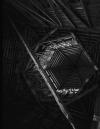Abstract
The Jesuits in America occupied peripheral areas and zones with a high risk of warlike conflicts with Indians or other European powers. The consolidation and defense of territories was as important as the evangelic duty. In the case of Chiloé -isolated because of its location in the extreme south of the continent, because of its island-like characteristics and because of the impassable border formed by the Indians- the Jesuits organized in the course of the 18th century a fantastic spatial network with their "circular missions" which allowed them to consolidate aboriginal communities in settlements around a chapel that was visited once a year and whose religious duties were led for the rest of the year by a "fiscal" appointed from the community itself. The "selection of the best" -mechanism which was inherent in the pedagogical criteria of the Compañía de Jesús- was developed from the Castro school and was applied to this empirical evangelization system. Although the chapels have been renovated, the network still shows the vitality of this way of organizing religion in the everyday life of the Chiloé communities. The work of the Jesuits in Chiloé is a distinctive feature as strong as the geography and the "seaside" settlement characteristics, and leaves a singular mark in the local culture. It also is an exceptional way of evangelization compared to other Jesuit experiences on the continent.Apuntes is registered under a Creative Commons Attribution 4.0 International Public License. Thus, this work may be reproduced, distributed, and publicly shared in digital format, as long as the names of the authors and Pontificia Universidad Javeriana are acknowledged. Others are allowed to quote, adapt, transform, auto-archive, republish, and create based on this material, for any purpose (even commercial ones), provided the authorship is duly acknowledged, a link to the original work is provided, and it is specified if changes have been made. Pontificia Universidad Javeriana does not hold the rights of published works and the authors are solely responsible for the contents of their works; they keep the moral, intellectual, privacy, and publicity rights.
Approving the intervention of the work (review, copy-editing, translation, layout) and the following outreach, are granted through an use license and not through an assignment of rights. This means the journal and Pontificia Universidad Javeriana cannot be held responsible for any ethical malpractice by the authors. As a consequence of the protection granted by the use license, the journal is not required to publish recantations or modify information already published, unless the errata stems from the editorial management process. Publishing contents in this journal does not generate royalties for contributors.


